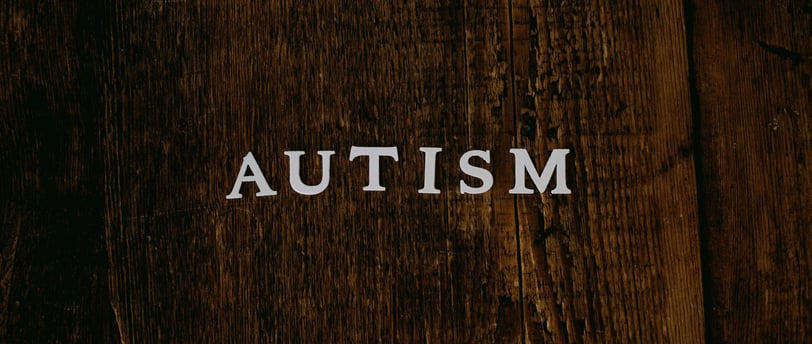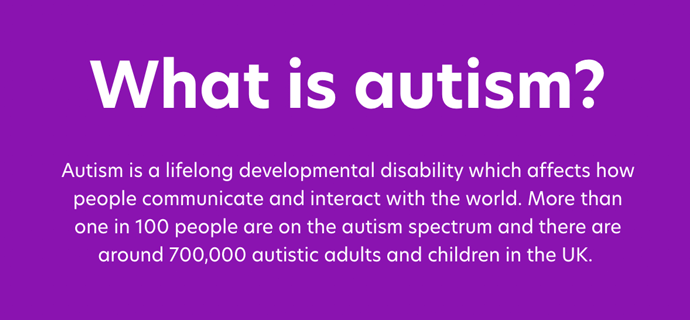“You know you’re autistic, right?”
My personal autism journey
Graham
12/9/20245 min read


I remember it so clearly. I was away for a 2-day strategy meeting in the Peak District, with the insight6 CEO, Jonathan, and some of the team. Jonathan and I were chatting about what it was like being the parent of an autistic child, which was something we shared when he turned to me and said "You know you’re autistic, right?" I have to admit, I was quite taken aback as it was something I’d never considered, but it planted a thought in my mind that kept growing.
A couple of weeks later, I did one of those online autism questionnaires, and the results came back with a strong indication that I had many autistic traits. Ok, so there could be something in this then.
My wife Katy had also changed job during this time, and was now working for Enna Global, a recruitment company that specialises in supporting neurodivergent job seekers. A big part of Katy’s role was coaching neurodivergent people, and when I spoke to her about me possibly being autistic, she was pretty sure that I was.
So, I then contacted a local organisation (oaadss.org.uk) which did adult autism assessments, and after some form filling, a 3-year wait, a half-day online assessment (with a psychiatrist and psychotherapist) and then another 6-week wait for the decision, on the 29th of July 2024 (which was my 46th birthday) I received the email report that said that I was indeed autistic.
While I was waiting for the assessment, and then for the results, I became slightly more certain that I would be diagnosed as autistic, but it still came as a bit of a shock. I was sure I had some autistic traits but wasn’t sure if it was enough for a diagnosis. But a couple of weeks later I had a call with one of the team who did my assessment, who described the decision as a ‘slam-dunk’ and that I hit every single criteria.
So, what is autism? Here's a definition from the The National Autistic Society website.
The criteria for diagnosis* is:
1. Persistent difficulties with social communication and social interaction across multiple contexts
2. Restrictive and repetitive patterns of behaviour, activities or interests
3. Symptoms (personally, I’m not a fan of the word symptoms here, being autistic isn’t an illness- it’s who I am) must be present in the early developmental period
4. Symptoms cause clinically significant impairment in social, occupational, or other areas of current functioning
5. These disturbances are not better explained by intellectual disability
I’ve shared my diagnosis with many people over the last few months and have had mixed reactions. Some people have said that it’s no surprise at all. whereas other people have been so shocked and couldn’t (and probably still can’t) understand it.
I think a lot of it depends on where people know me from. If you’ve only ever met me at a workshop I’ve been delivering or seen me speak at a conference, then I can imagine it might be a surprise (Like many autistic people, I mask in many situations. Masking is a strategy used by some autistic people, consciously or unconsciously, to appear non-autistic in order to blend in and be more accepted in society).
But, if you know me well, or have seen me in unstructured social situations, then it may come as no surprise at all.
There’s a saying in the autistic community, that if you’ve met one autistic person you’ve met one autistic person. Autism is a spectrum condition, which means it affects people in many different ways and can also affect the same person in different ways, in different situations.
So, what does being autistic look like for me?
When I was younger, it looked like this:
Hiding under coats in the cloakroom at the start of the day at primary school, while all the other kids went into class, before getting up and walking home
Regularly running away when out shopping, only to be found hiding in the clothes displays (bit of a theme developing)
Not able to eat certain textured food
Having to change secondary school after 6 months, and then missing probably around 1/5 of all secondary school. Loads of medical tests were done to figure out what was causing me to appear ill, and struggle going to school, but nothing conclusive was found
Pretty much just not going to college. I had no idea at the time what was making it so hard for me to go, but looking back I can now see how hard I found the interaction and communication parts, and it was easier just to avoid them
Dropping out of Uni after 6 months after finding the social aspects impossible to manage
As a young adult, it changed to:
Self-medicating to get through nights out
Crippling anxiety before any type of event for work, with things like conferences the absolute worst (unless I was running the event, which I found so much easier as I had more control)
Masking when in social situations, which was exhausting and took loads of time to recover from
Then, getting older it started to look like this:
A significant period of depression and anxiety. Difficulties with anxiety are never too far away for me, but I work so hard on mental skills and tools to help manage it as best I can
Stepping back from friends and being far more selective about which social situations and work events/meetings to go to
Still the same anxiety before events, and having to plan in time after events to recover
Hyper-focused interests, and not always in a healthy way. In recent years this has included an obsession with triathlon, Japanese campervans, ultra running, Brazilian jiu-jitsu and coffee-making
Still, a huge amount of masking going on, especially around work. It feels like I almost play a character at work sometimes, which includes putting on my glasses which I only wear for work. They get me into character and ready for the day (a bit like a reverse Clark Kent/Superman situation). My kids also say my voice is completely different at work to at home
Before going through the assessment process, I started to get fascinated by how the human brain works and became pretty much obsessed with learning everything I could in this area. This has resulted in a Performance Psychology MSc, as well as other qualifications in Neuroscience and Executive Coaching.
Now, after over 3 years going through the process, and 4 months post-diagnosis I feel in a good place. I’m far more comfortable sharing the things I find challenging and structuring my life in such a way as to reduce these challenges. I’m very happy in my own skin and I feel the diagnosis has explained so many things that have happened in my life and I am excited about what the future brings.
I also want to make a difference in the neurodivergent community. Both my boys are neurodivergent, with Sam being autistic and Jake having ADHD, and one thing my wife and I have learnt while trying to best support our boys is that interventions, tools and techniques that work for neurodivergent people, tend to work brilliantly for those that are neurotypical as well.
That's some of the inspiration behind setting up Insio.
At Insio, we’re committed to celebrating neurodivergence and fostering environments where everyone, regardless of their wiring, can thrive. My story is just one piece of a larger mission to empower others to find their best, while staying true to their authentic selves.
Graham
P.S. Here's a brilliant video that gives a simple explanation of autism



